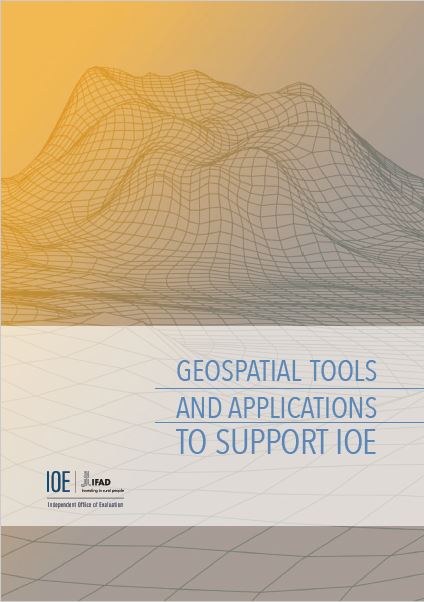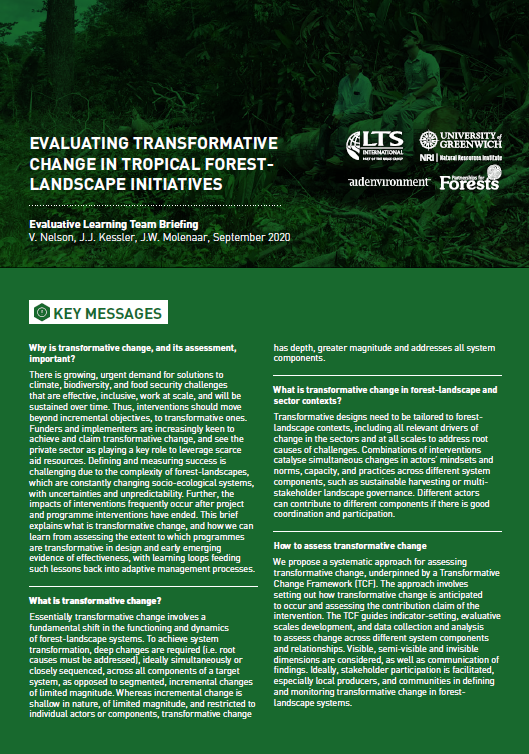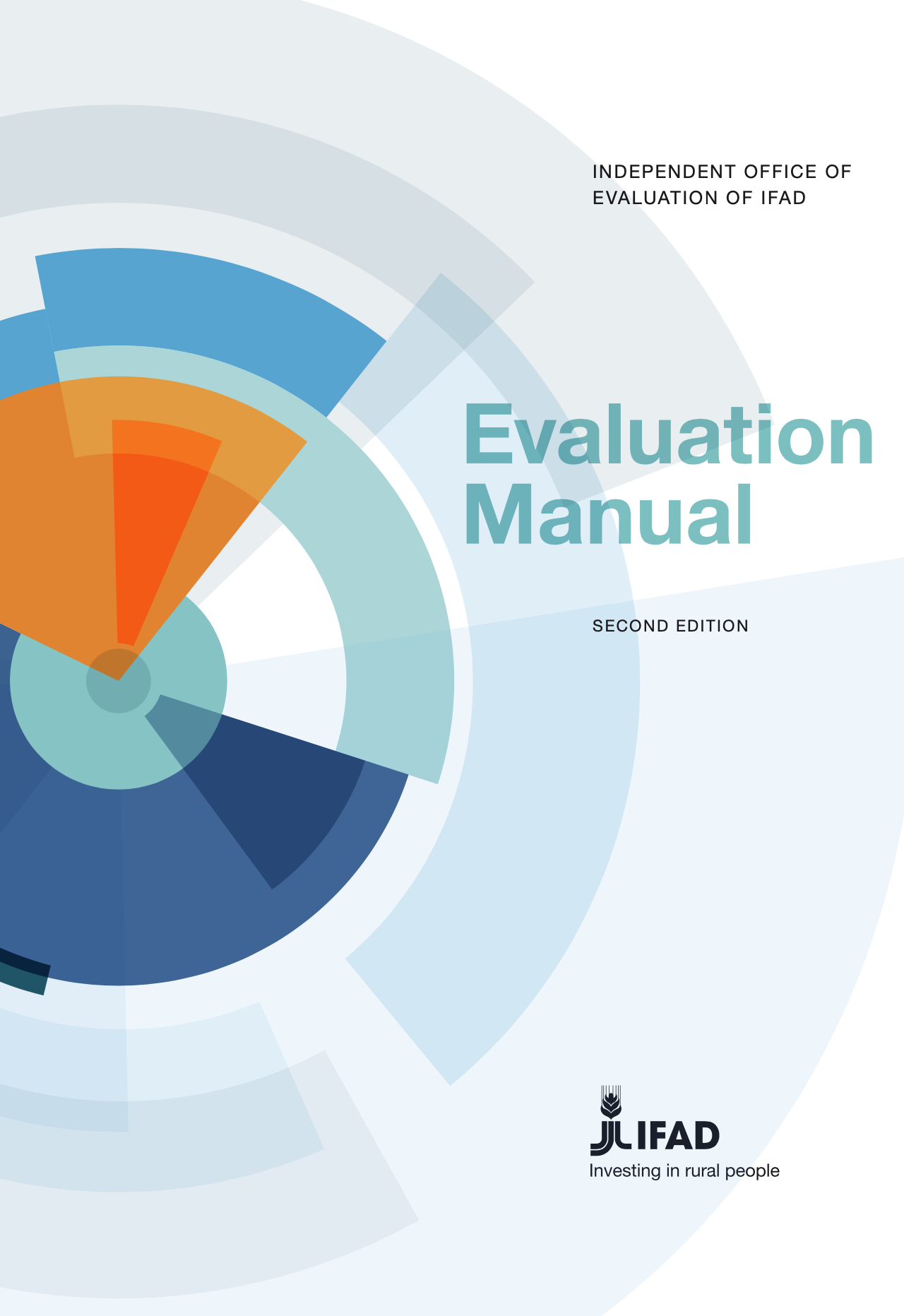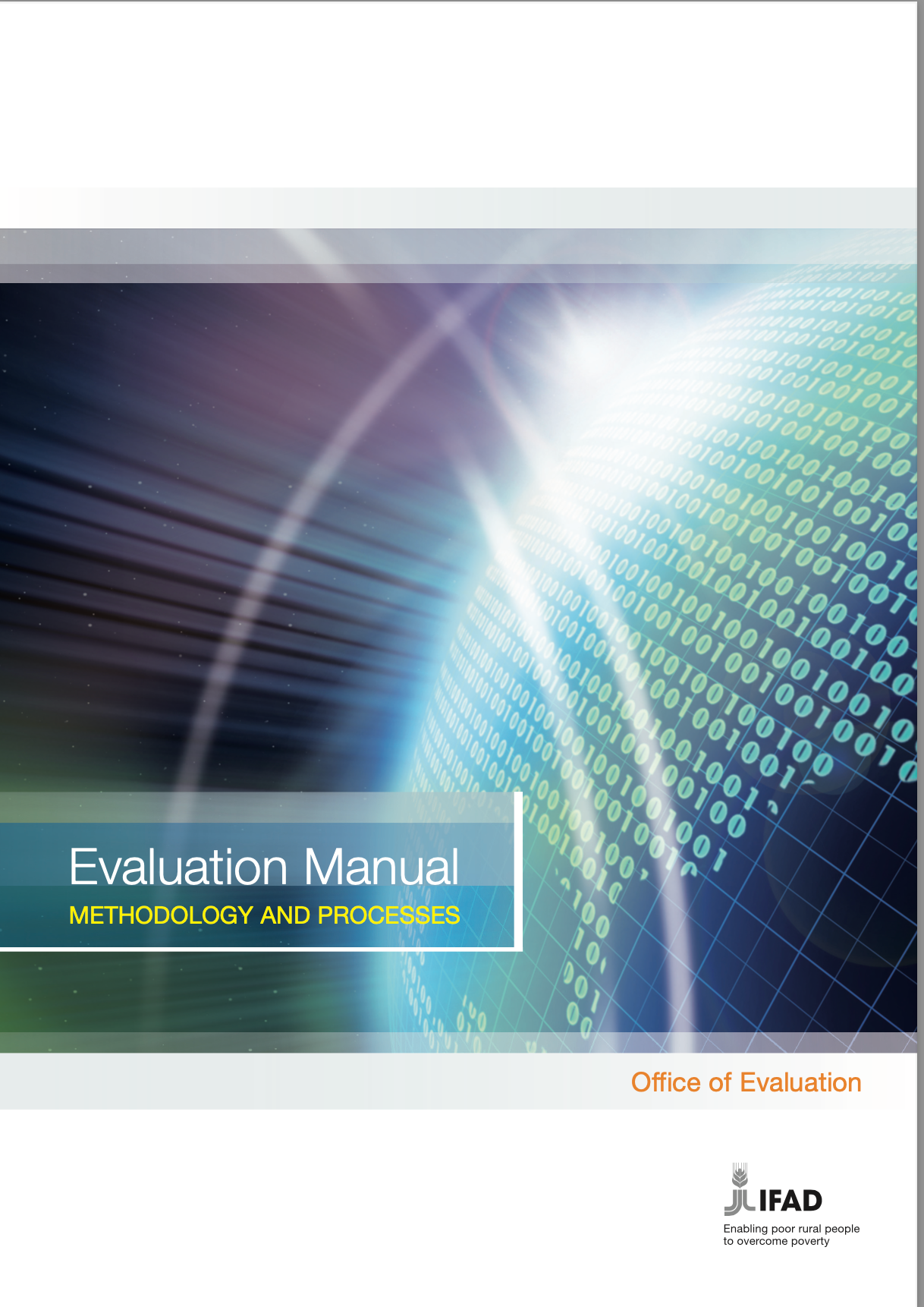Evaluation Manual – Third edition - IOE
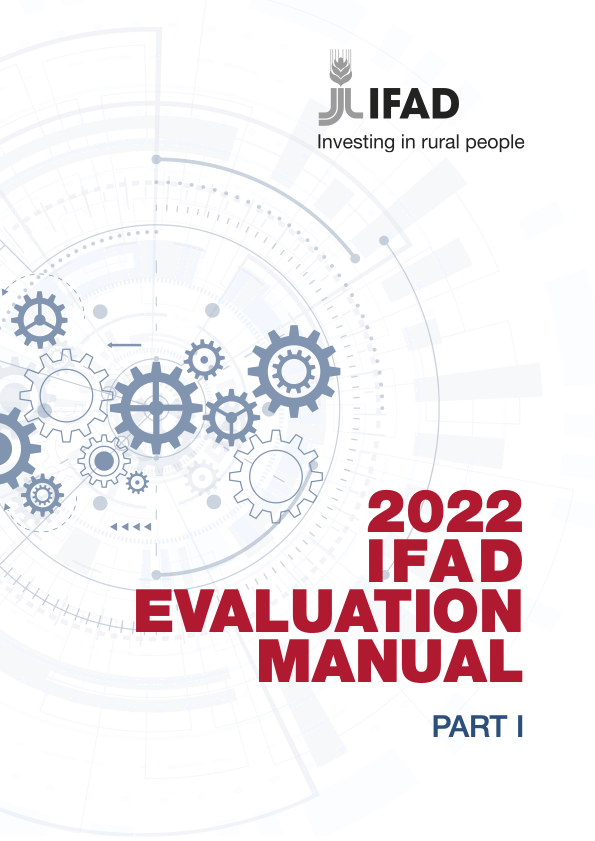
Evaluation Manual – Third edition
The 2022 edition of the IFAD Evaluation Manual, prepared in consultation with IFAD Management, is the third version of the document and represents a major revision of the 2015 edition. For the first time, the Evaluation Manual applies to both self- and independent evaluation.
The primary purpose of the Evaluation Manual is to ensure the quality, consistency, rigour and transparency of the evaluation function at IFAD, in order to increase the effectiveness of IFAD’s efforts. Along these lines, it provides guidance on adapting international standards, practices and evaluation criteria to the context of rural development, particularly when the end-clients of development interventions are smallholder farmers and small rural producers. The Manual also offers methodological guidance and standards for evaluations across the Fund.
Conceived as a living document, the 2022 Manual draws on contemporary evaluation literature and advances made since the launch of the 2030 Agenda for Sustainable Development, such as the notion of transformative change and addressing sustainability and climate resilience. It also relies on IFAD’s wealth of experience and good practices in evaluating rural development and poverty reduction programmes, as well as corporate policies and processes.
The Evaluation Manual is envisaged to be of interest to IFAD staff members and consultants, as well as to a broader group of stakeholders - governments, the private sector, civil society and other development partners involved in IFAD’s planning, monitoring and evaluation processes – and professionals who are committed to rural development and poverty reduction.
The IFAD Evaluation Manual comprises two parts. Part I establishes general principles, methodological standards and processes that foster collaboration between IOE and IFAD Management. Part II is devoted to specific evaluation products, including both IOE and self-evaluation products.
The Manual is currently available in full in English. Translations into French, Spanish and Arabic will be made available on this webpage.
